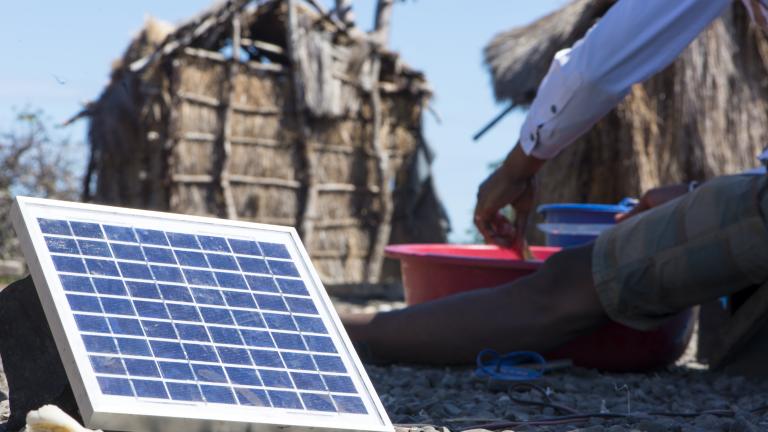
by: Sruthi Davuluri
In Ghana, though Pay-As-You-Go solar technologies have become increasingly popular among rural populations for providing electricity to off-grid communities, there are a number of challenges reaching universal access. Pay-as-you-go (or PayGo) allows customers to put forward a deposit and take physical ownership of a solar home system while paying off the balance in small installments. These payment structure mirrors that of rechargeable mobile phones used in many developing countries, where the PayGo solar device is automatically disabled if these installment (typically daily) payments are not made. Though common in Kenya and other parts of East Africa, PayGo has faced several challenges and struggled to gain a foothold across West Africa. The World Bank’s Lighting Global, Dalberg Advisors, and other relevant actors produced a conducive overview named “Off-Grid Solar Market Trends Report 2018,” which can be found here.
PayGo solar home systems are primarily intended for communities without access to reliable, affordable electricity. Yet, these communities (and thus by extension, potential customers) are often difficulty to identity given the lack of clarity and transparency around electricity expansion policies as government agencies, politicians, and associated press often promise grid expansion, especially during campaign season, without a guarantee that the infrastructure will come to fruition. More coordination and collaboration between the private sector and Ghana Energy Commission could help curb this issue.
Furthermore, PayGo solar home systems were designed as a complement to mobile money yet a number of customers in rural areas of Ghana lack access to reliable wireless connection. Thus, many of them are unable to complete scheduled mobile payments and their systems are automatically switched off. While some communities have addressed this problem with a local service provider that manually delivers a code to these users, this issue directly hinders the main sell of the PayGo business model.
Typically, competition amongst private sector energy providers is seen as a positive attribute and should be encouraged. However, when providing energy services to customers in distant, rural locations, competition may lead to an excess of choice that increases inefficiencies and redundancies since multiple companies end up providing very similar services and products. In this case, unlike the ideal competitive market, competition does not lead to product diversification but similar, exchangeable products. Since many local people must abandon their traditional method of lighting and energy services when transitioning to the PayGo solar home systems, it takes time to assimilate the product, especially when sold by foreign companies. Therefore, it might not be advisable for multiple social entrepreneurs to visit the same rural communities, selling very similar products. Instead, a centralized party, such as the Ghanaian Energy Commision, would ideally coordinate which communities will soon obtain access to the main grid and also regulate prices to mitigate monopoly power.
For further reading, download Sruthi's full report here. Sruthi spent January of 2018 exploring innovative energy solutions in Ghana as a personal research project. All views expressed are her own. This report was written thanks to the guidance from Burro Brand and PEG Africa, and the financial support from MISTI Africa and the PKG Public Service Center.







